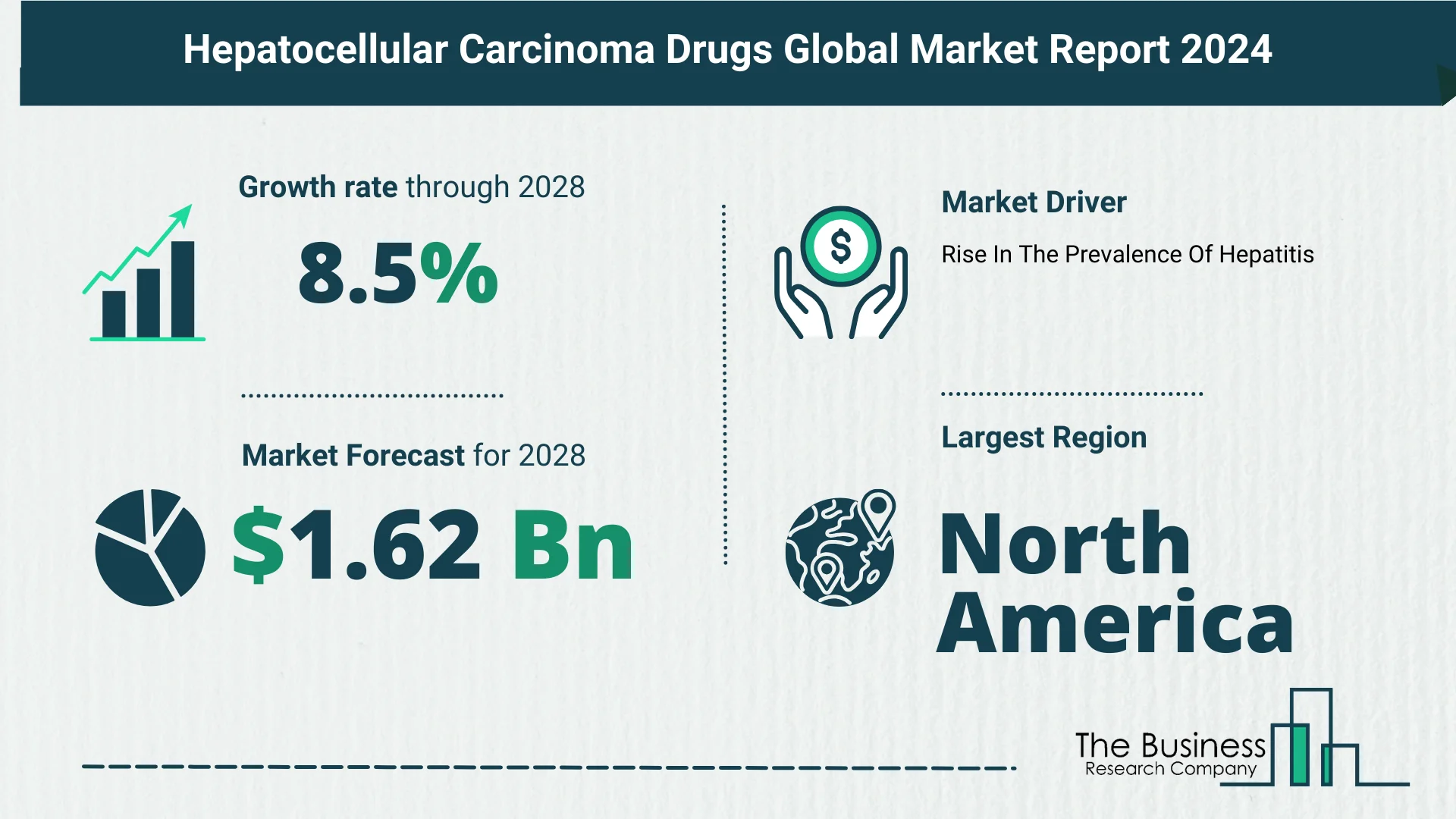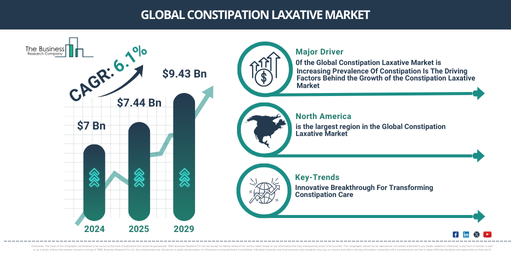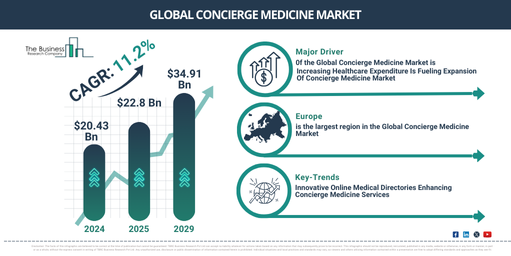What’s The Growth Forecast For Hepatocellular Carcinoma Drugs Market Through 2024-2033?
The Business Research Company’s global market reports provide comprehensive analysis on the various markets in 27 industries across 60 geographies.
Introduction: The Thriving Landscape of Hepatocellular Carcinoma Drugs
The hepatocellular carcinoma drugs market has witnessed robust growth in recent years, with promising projections for the future. From 2023 to 2024, the market is expected to expand from $1.07 billion to $1.17 billion, demonstrating a Compound Annual Growth Rate (CAGR) of 9.5%. Beyond 2024, the market is anticipated to reach $1.62 billion by 2028, showcasing a CAGR of 8.5%.
Factors Driving Market Growth
- Increased disease incidence
- Advancements in cancer research
- Global healthcare infrastructure improvement
- Regulatory approvals
- Awareness and early diagnosis initiatives
Rising Occurrence of Hepatocellular Carcinoma Fuels Growth in the Market
Hepatocellular carcinoma (HCC), the most common form of liver cancer, has seen a notable increase in occurrence. This rise stems from factors such as hepatitis B or C infections and cirrhosis. For instance, the American Cancer Society reported a rise in new cases of liver cancer in the United States, indicating a growing demand for effective treatment options.
Key Players and Market Dynamics
- Major companies such as AbbVie Inc., Novartis AG, Pfizer Inc., and others are pivotal in driving innovations and market expansion.
- Laboratory-produced molecules like monoclonal antibodies (mAb) are gaining prominence in the market, offering targeted and effective treatment options.
- Notable developments include AstraZeneca PLC’s FDA approval for Imjudo and Novartis AG’s acquisition of Chinook Therapeutics Inc., reflecting a strategic focus on advancing treatment modalities.
View More On The Hepatocellular Carcinoma Drugs Market Report 2024 – https://www.thebusinessresearchcompany.com/report/hepatocellular-carcinoma-drugs-global-market-report
Laboratory-Produced Molecules in the Market
Laboratory-produced molecules, particularly monoclonal antibodies (mAb), play a significant role in expanding treatment options. A prime example is AstraZeneca PLC’s Imjudo and Imfinzi, which effectively target hepatocellular carcinoma by modulating immune responses. Additionally, Novartis AG’s acquisition of Chinook Therapeutics Inc. underscores the industry’s commitment to innovation and therapeutic advancements.
Segmentation and Regional Insights
The hepatocellular carcinoma drugs market is segmented based on type, drug class, and end-user demographics. Key segments include brachytherapy and chemotherapy, PD-1/PD-L1 inhibitors, and tyrosine kinase inhibitors. End users encompass hospitals, clinics, cancer rehabilitation centers, and ambulatory surgical centers.
Market Outlook and Growth Prospects
- North America emerged as the largest region in the hepatocellular carcinoma drugs market in 2023, highlighting the region’s significant contribution to market expansion.
- Future growth trends focus on access to innovative therapies, patient-centric care, regulatory advancements, drug resistance mitigation strategies, and collaborative research initiatives.
Conclusion: Navigating the Evolving Landscape
The hepatocellular carcinoma drugs market presents immense opportunities for growth and innovation. With an increasing emphasis on personalized healthcare and targeted therapies, stakeholders across the industry are poised to drive meaningful advancements in the treatment of hepatocellular carcinoma. As research continues to evolve and regulatory frameworks adapt, the landscape of hepatocellular carcinoma treatment will undoubtedly undergo transformative changes, ultimately benefiting patients worldwide.
Request A Sample Of The Global Hepatocellular Carcinoma Drugs Market Report 2024:
https://www.thebusinessresearchcompany.com/sample_request?id=10809&type=smp



